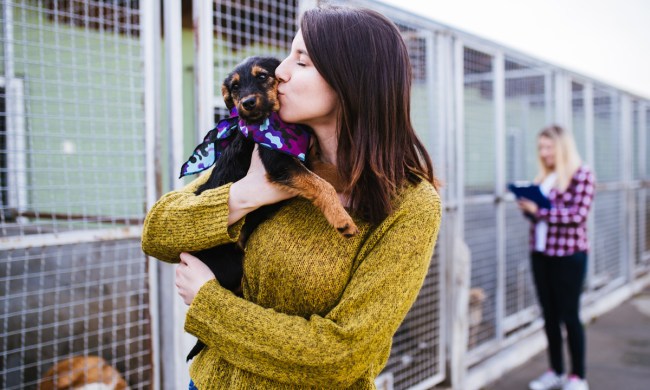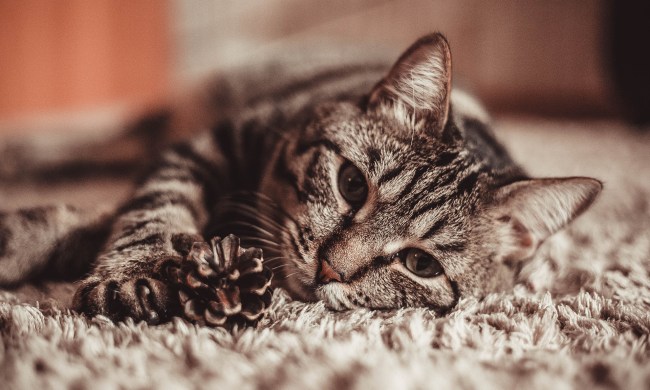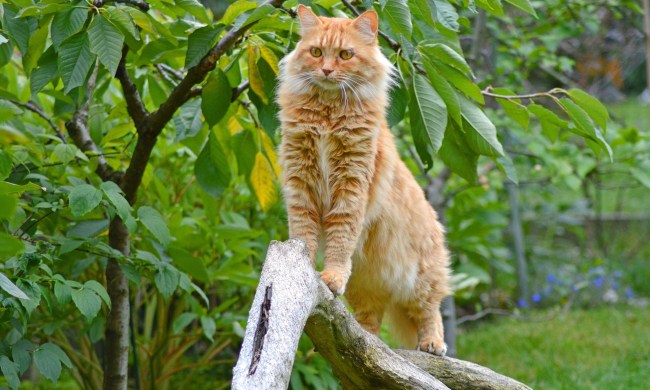So, you’re moving closer to retirement age. Congratulations! After so many years of hard work and dedication, you deserve to relax and fill your days with things you’ve always wanted to do. If sharing your life with a pet isn’t on the list, then you should seriously consider it. Adopting a dog or cat in retirement is a great idea. Here are some reasons why.
Dogs encourage exercise
When you retire, you will no longer have a schedule and routine that gets you up and out of the house. This can be great in the beginning but can soon leave you spending too much time on the couch. This certainly won’t happen if you live with a dog. Responsible dog ownership means going for walks, and physical activity is good for your health. A study by researchers at the University of Missouri found that dog walking was associated with a lower body mass index, fewer doctor visits, and more frequent moderate and vigorous exercise. Another study led by BioMed Central concluded that older adults with dogs walked at a moderate cadence on average an additional 20 minutes and 2,700 steps per day compared with retirees who didn’t own dogs.
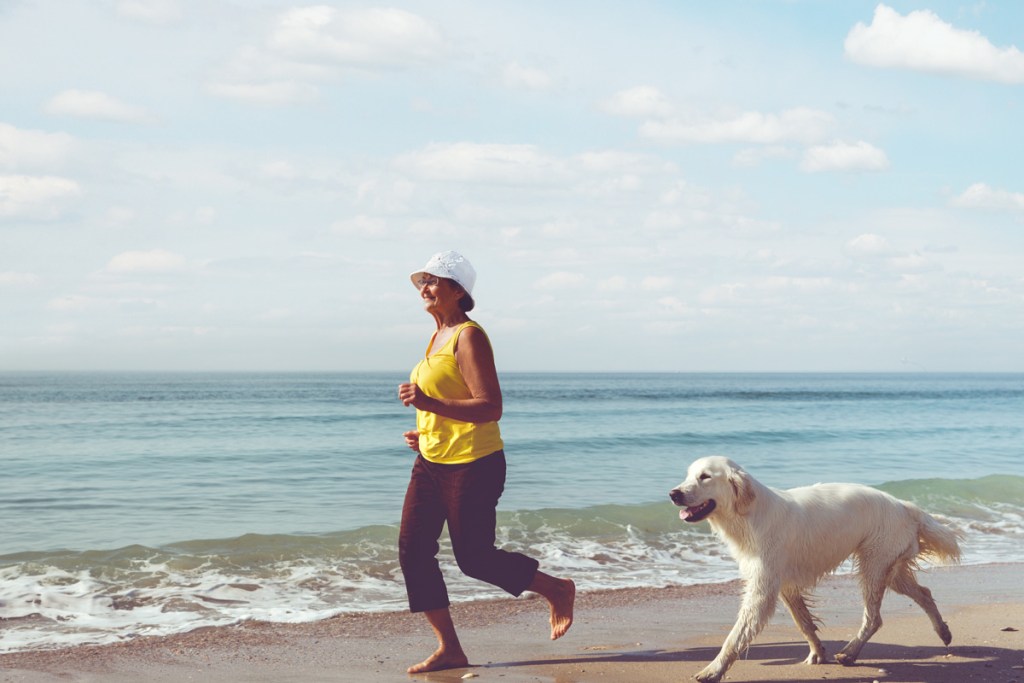
Pets make great companions
You’re bound to miss your co-workers when you first retire. And if you have a partner, maybe he or she is still working, and you’re spending a lot more time alone. Dogs and cats make wonderful companions. They are always available to listen to your stories, will appreciate being groomed, and, whether being petted or learning new tricks, will always love spending time with you.
Dogs help connect you with the community
In retirement, you will probably be looking to make new connections. Walking your dog around the neighborhood is a great way to meet new people. Instead of starting conversations around the water fountain, you’ll now be chatting at the end of a leash, and before long, you’ll have a new circle of friends.
Questions to consider when choosing a dog
Do you want a large or small dog?
Take your physical strength into consideration when choosing a dog. Will you be comfortable with a larger breed who may pull on walks, or would a smaller dog be a better fit? If you plan on traveling in retirement and want to bring your dog, a small dog makes more sense. Also, think about your living space. You might live in a large home now, but maybe in a few years, you’ll downsize to a condo in a retirement community. Many of these communities allow only small dogs.
Are you looking for an energetic or a laid-back dog?
In retirement, are you planning on spending lots of time doing outdoor activities like hiking or biking? If yes, then choosing a younger, energetic dog makes sense. On the other hand, if a less active lifestyle is what you want, then look for a dog who is happy with shorter walks and hanging around inside with you. Think carefully before taking on a puppy, as they require a huge investment in time, training, and socialization.
Are you looking for a particular breed?
If you have a particular breed in mind, be sure to research whether these dogs are predisposed to any particular health issues. This is especially important if you’re on a fixed income because veterinary bills can quickly add up. Retirees and older adults tend to be attracted to smaller breeds, including Cavalier King Charles spaniels, Chihuahuas, West Highland terriers, and Pembroke Welsh corgis. These are all popular choices because of their loving temperaments, manageable size, and easy maintenance.
Cats make great retirement companions
While cats make wonderful pets for people of all ages, they are especially great for retirees who don’t want to invest the time needed to train and exercise dogs. Cats are also a good choice of pet for retirees planning to travel or visit with family. A pet sitter can drop by twice a day to care for a cat who will do just fine being home alone for short periods.
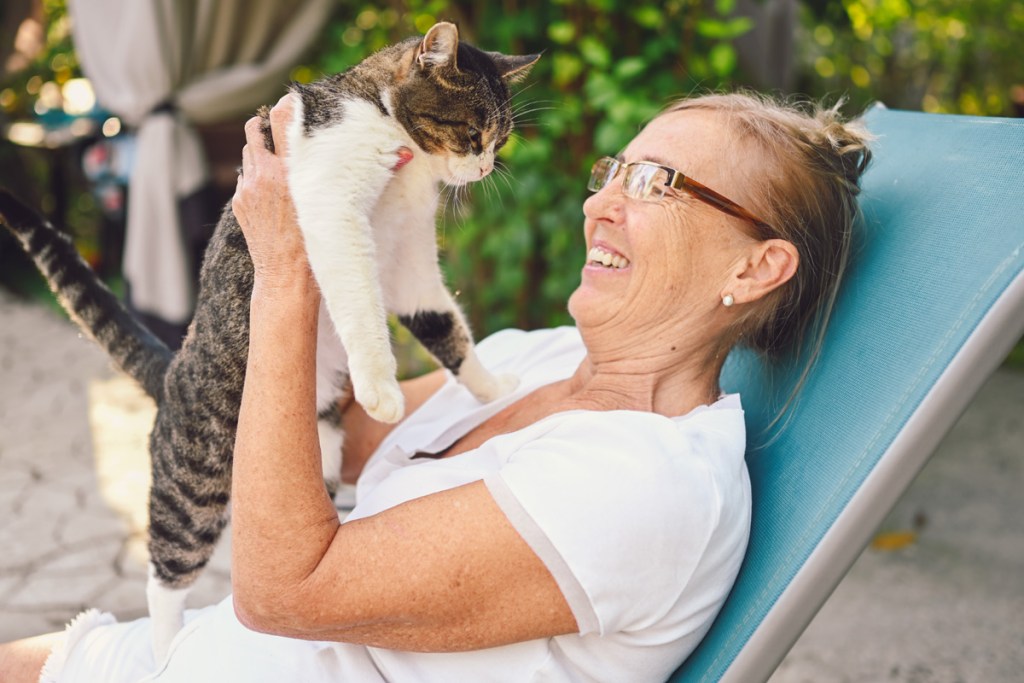
What to consider when choosing a cat
Are you looking for a young, playful, energetic cat or kitten who craves your time and attention, or would you be happier with an older laid-back lap cat? Does the breed of cat matter to you? According to American Humane, the domestic shorthair is the favorite non-pedigree cat in the U.S. Millions of these wonderful cats are waiting at shelters to be adopted into loving homes. Topping the Cat Fanciers Association’s (CFA) list of most popular pedigreed cats are the following:
- Persians are sociable, friendly, and smart, and they make great companions.
- Maine coons are intelligent and trainable, and the CFA describes them as doglike.
- Ragdolls are easygoing people pleasers with captivating blue eyes.
Whether you’re looking to adopt a cat or dog, a great place to begin your search is at Petfinder.com. If you’re not yet ready to make a permanent commitment to a pet, consider fostering. This is a great way to ease into the responsibility of caring for a pet while giving a homeless animal a break from the shelter. And who knows, you just might fall in love and adopt your new best friend.

